In March 2024, during the Japan FinTech Festival, a roundtable on "Shaping data policies through cross-border collaborations" debated practical industry and policy issues surrounding the G7 Data Free Flow with Trust (DFTT) Initiative. The roundtable highlighted key considerations for enhancing the free flow of data while balancing policy objectives related to data governance, consumer protection, and the digital economy.
In 2017, The Economist declared data as the new oil. Data would be the source of wealth and power in the 21st century. But like oil, data is not without its challenges - it needs to be collected, classified, processed, stored, transmitted and consumed, all with associated risks and costs.
Data sits the heart of modern payments. It is a centrepiece in the G20 cross border payments agenda. Fintechs see much of the value in payments from data as opposed to transactions revenue, where margins are approaching zero. Data will become increasingly standardised through adoption of the ISO 20022 and LEIs; and likely regulated on a consistent basis, unleashing value that will create cross border payments that are accessible, affordable, transparent and fast.
However, data is more than just payments and governments, policymakers and other industries are also looking at data in terms of giving consumers greater control over their own data, opening up government data to third parties, and enabling e-commerce and global trade in digital goods - all within a context where there is concern over privacy, fraud and national security.
As the payments and non-payments worlds grapple with make data work better so that value can be unlocked, there is the risk of new silos being created. What are the challenges for the payments ecosystem and fintech sector around reforms in the areas of global trade or open data? What are the opportunities? How do we ensure consistency and alignment in data standards and data regulation across the economy?
GFTN Insights
Roundtable Room 3, Sands Expo & Convention Centre, Level 4
- Next-Gen Transactions


















